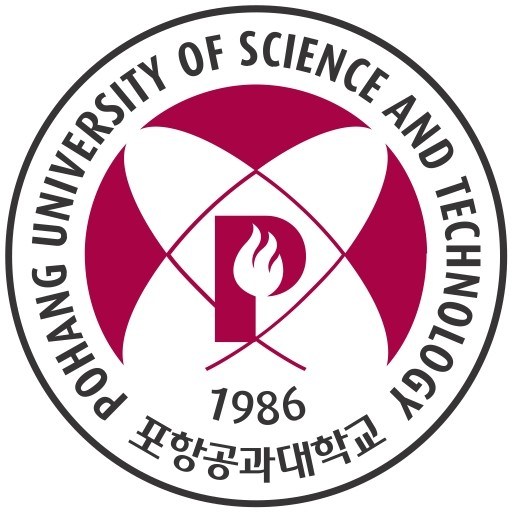Photos of university
The Department of Nuclear Engineering at Pohang University of Science and Technology offers an advanced graduate program dedicated to the comprehensive study and innovative development of nuclear technology. This program is designed to equip students with in-depth theoretical knowledge and practical skills in the fields of reactor physics, nuclear materials, radiation safety, and nuclear system design. It emphasizes cutting-edge research in nuclear energy applications, including safety analysis, waste management, and next-generation reactor technologies such as small modular reactors and fusion energy. Students engage in rigorous coursework complemented by experimental research and industry collaborations, preparing them for leadership roles in academia, industry, and governmental agencies. The curriculum integrates fundamental sciences with specialized training in reactor engineering, many of which are aligned with international standards and emerging technological trends. The program fosters a multidisciplinary approach, combining principles from physics, engineering, and environmental science to address the global challenges of sustainable energy production. Facilities include state-of-the-art laboratories, simulation tools, and partnerships with leading research institutions worldwide. Graduates will be well-equipped to contribute to the development of safer, more efficient nuclear systems, and to participate actively in shaping the future of nuclear power and related fields. With a focus on innovation and safety, the program aims to prepare experts capable of addressing the complex technical and societal issues associated with nuclear energy, ensuring safe and sustainable energy solutions for the future.
- Fundamentals of Nuclear Engineering
- Nuclear Reactor Physics
- Heat Transfer Physics
- Energy Conversion and Power Plant Technology
- Introduction to Finite Element Method
- Atomistic Simulation
- Phase Transformation
- Radiation: detection, measurements and protection-(1)
- Radiation : detection, measurements and protection-(2)
- Catalysis
- Advanced Energy Engineering
- Radioactive Wastes and Contaminants in Environment
- Non-crystalline Inorganic Materials
- Bioremediation Engineering
- Two Phase Flow
- High Temperature Reactor and Hydrogen System
- Biochemical Engineering – Nuclear Waste Management
- Photonics Glasses
- Vitrification of Radioactive Waste
- Master Thesis Research
- Special Topics in NUCE A-D
- Seminar A-C
Requirements
- Applicants must fill out the online application.
- Personal Statement and Research Plan - Download format from the website: http://admission.postech.ac.kr/linkUsen.do?f=sub3-2
- Curriculum Vitae (Free style personal resume)
- Copy of Passport
- Signed Consent Form - Download format from the website: http://admission.postech.ac.kr/linkUsen.do?f=sub3-2
- List of Honors and Awards (optional) - Applicants who have received any honors, awards, or fellowships during their undergraduate or graduate studies may list them in the order of importance.
- Application fee: 80 USD or 80,000 KRW
- Official Transcript(s)
- Degree Certificate(s)
- Recommendation Letters - From two recommenders (academic faculty) - Must be e-mailed or sent by post directly by each recommender, enclosed in a sealed envelope.
- Official English Proficiency Test Score: PBT 550, CBT 213, IBT 79, ITP 550, IELTS 6, TOEIC 800, TEPS 680 or higher (Language Test Exemption: Native English speakers and non-native speakers from countries where English is used as means of education)
- Degree Theses (option
Scholarships
- Korean Government Scholarship Program (KGSP)
- Global Education
- POSCO Asia Fellowship
- SK hynix Fellowship
- POSTECH Teaching or Research Assistantship
- POSTECH Fellowship for Excellent International Students(PFES)
- POSTECH Settlement Allowance for New International Students
The Department of Advanced Nuclear Engineering at Pohang University of Science and Technology (POSTECH) offers a comprehensive graduate program focused on the development, safety, and management of nuclear power systems. The program emphasizes a multidisciplinary approach, integrating principles from nuclear physics, thermodynamics, materials science, and environmental safety to prepare students for careers in research, industry, and academia. Students have access to state-of-the-art laboratories and research facilities, enabling them to engage in cutting-edge projects related to reactor design, nuclear fuel cycle, radiation shielding, and nuclear safety analysis.
The curriculum combines core courses, specialized electives, and research work, fostering a deep understanding of nuclear engineering concepts. Emphasis is placed on innovation and technological advancements, including nuclear reactor technologies such as small modular reactors (SMRs), next-generation reactor systems, and fusion energy. The program also addresses critical issues like nuclear waste management, radioactive waste disposal, and the development of safer reactor materials. Graduates are equipped with both theoretical knowledge and practical skills, making them competitive in global energy markets and nuclear technology development.
The faculty comprises internationally renowned researchers and industry experts, contributing to a vibrant academic environment that encourages collaboration across disciplines. The program promotes active participation in national and international research projects and conferences, providing students with opportunities for professional networking and exposure to global nuclear challenges. Additionally, students benefit from partnerships with government agencies, nuclear industry companies, and international organizations, facilitating internships and joint research initiatives.
Postgraduate students are expected to undertake thesis research that advances current understanding and technological capabilities in nuclear engineering. The program aims to produce leaders who can contribute to sustainable energy solutions, nuclear safety standards, and the responsible development of nuclear technologies. Overall, the Advanced Nuclear Engineering program at POSTECH equips graduates with the knowledge, skills, and research experience necessary for fostering innovation in nuclear science and addressing the world's future energy needs.


